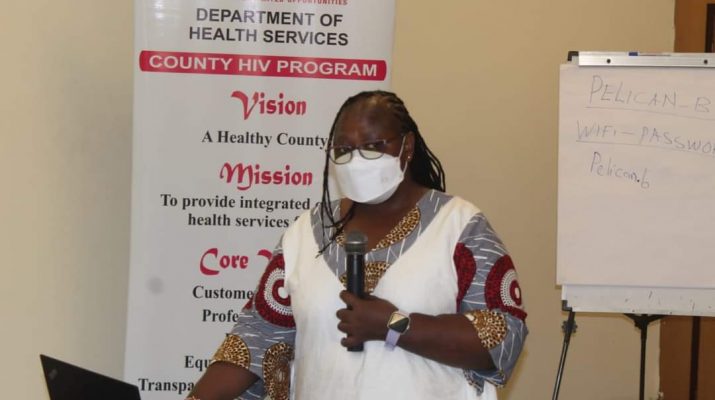The County government of Nakuru has increased HIV comprehensive health centers to 110 up from 60 in an effort to improve on access to quality HIV prevention and treatment services. Governor Lee Kinyanjui said 100 facility managers have been trained on HIV management to man the centers courtesy of the County’s Department of Health services in collaboration with USAID’s Tujenge Jamii programme.
Kinyanjui further said the County had made progress in the fight against HIV/Aids adding that the increase in comprehensive health centers will go a long way in improving access to HIV services.
He expressed happiness that the retro-viral uptake in the County had increased from 75 to 99 percent with the number of those diagnosed with HIV in the county currently standing at 58,575.
Kinyanjui however regretted the rise in HIV infection in the County and attributed it to the fact that Nakuru was at the center of many destinations besides being an economic hub and world-tourist attraction site.
He lamented over the ever-rising HIV transmission and acquisition rates which he noted had risen from 900 in 2015 to 1,869 in 2020 and assured that the County was committed to bringing the rates down.
Nakuru County Executive Committee Member for Health Dr Zachary Kariuki said the HIV infection trend was related to the increase in teenage pregnancies, with statistics from the Kenya Demographic and Health Survey indicating that one in every five girls aged between 15 and 19 years, was either pregnant or already a mother.
Kariuki said the fight against teenage pregnancies was being hampered by cross-generational relationships, where the teen girls have limited say, transactional sexual relationships, unequal gender power relations, poverty and lack of parental counseling and guidance but assured that the County was committed to reversing the trends.
USAID’s Tujenge Jamii Chief of Party, Dr Moses Kitheka said measures to curb teenage pregnancies have largely been focused on females and advised that boys and men should not only be held responsible for their sexual behavior, but also targeted with interventions.
He noted that involving boys and men will make programming for girls more effective, by addressing both sides of the teen pregnancy equation.
He called for more men-led community based programmes to educate adolescent boys on responsible manhood saying doing so will encourage them to abstain from sex and use contraception if they are sexually active.
Kitheka said USAID Tujenge Jamii is geared towards supporting the County governments in achieving the national goals of responding to HIV/AIDS and also safeguarding the rights and welfare of children and adolescents impacted on by HIV/AIDS.
He promised to work together with the County government of Nakuru in the commitment towards global agreement to end HIV come 2030.

